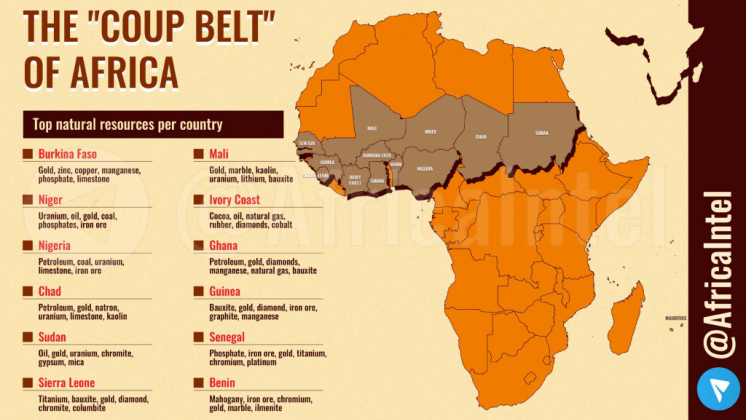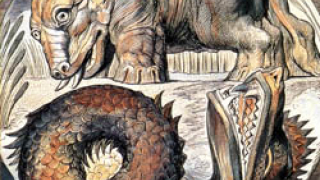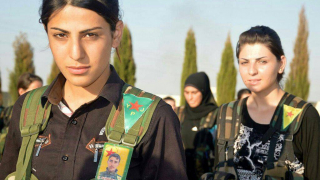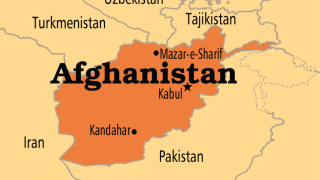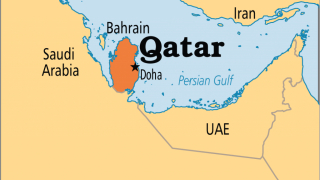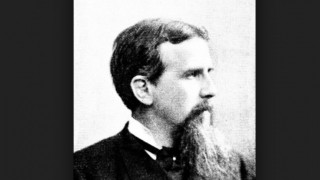Interview on current events in Niger and the African continent with Intel Africa
Good day and thank you very much for accepting this interview. I follow very closely your journalism work where you report every day on news from all over Africa. It is my favourite specialised source for a reliable reference of what is happening on the African continent.
This time, the hot topic in Africa and the rest of the world is Niger. Let's put it in context: On last 26th July, a coup took place in Niger, a continental (landlocked) country in West Africa and in the Sahel zone. As it turned out, a group of military officers overthrew President Bazoum.
Reactions came swiftly. Among West African countries there was a division between pro-presidential and pro-military junta countries. Mainly continental countries such as Burkina Faso, Mali, Guinea and Algeria positioned themselves on the military side. While coastal ECOWAS countries positioned themselves in favour of the ousted president. In the West, the reaction among French, British and US governments has been to side with the ousted president, calling for his reinstatement and even threatening military intervention.
Then... Russia appears. Or rather, Russian flags at various demonstrations in Niger. It also coincided with the Russia-Africa summit, where the political closeness between Russia and many African countries was highlighted. There was talk of the struggle against imperialism and Western colonialism, and the Burkina Faso military man, Ibrahim Traoré, stood out. A very special group also appeared on the stage: the PMC Wagner.
1. So far, a brief context of the situation, but I would like to ask you first of all: What can we highlight about Niger at first sight for any analyst who now knows something about that country? There is a lot of talk about uranium, is it that important in the country and in the region?
So, without further ado, Niger. The most important things for us to know about Niger firsthand are the influence of France, uranium deposits and terrorism. Practically all things in this country revolves around these three things.
Since 19th-20th centuries France had a huge influence on Sahel region. And decolonisation did not change the situation. Why? Well, throughout the existence of colonial empire these states hardly developed, did not create their own industries, and the infrastructure built by colonizers, without skilled maintenance, slowly began to deteriorate. The young states could not sell their resources either, as they had no access to the international market, which has long been divided without them (the problem persists to this day, by the way).
The local elite was (and still is) loyal to the French authorities and hoped for their help. Therefore, the logical solution for many people was to ask French and transnational companies to organize access to the market, i.e. to sell their resources not to the final buyer on their own terms, but through intermediaries.
The situation with Niger and its uranium (which is very important for France) is the same. France only gave 5% of all profits from the resources in Niger to the people of the country. Local elite (and toppled president Bazoum as well) for their own benefit allowed France to do it. And the most interesting part is that France still has economic control over former colonies. All elite's assets are in France, CFA Franc is the currency of former French colonies is Africa, French companies still function in these countries, etc.
And last but not least is terrorism. Mali, Burkina Faso and Niger to this very day do not control large parts of their countries in the area of the Three Borders. There is an opinion that terrorism appeared there because of France and the US. These countries sponsor insurgency and threat population in Mali, Burkina Faso and Niger, so they would just willingly let France in to "defend them".
2. This may seem like a meaningless question, but what was the motive for the coup d'état? And I ask this question because it is the issue that I don't find analyzed anywhere (so far). That is, it s, it seems that no matter what the motive was, there was a coup d'état and that was it.
You're right, there are many versions why the coup took place. In my opinion, this is all just case of a struggles between tribes. As we know, the countries in Sahel region (and overall in Africa) are heterogeneous in their populations. Many tribes compete and negotiate with each other for power and control over the country. So the reason is the struggle for power between previous president Bazoum (who is from the Arab minority in Niger) and army elite (most of whom Bazoum wanted to replace with his own men).
And what about ordinary people? Well, they just want a better life, and they do not like France for colonial reasons. So they would welcome any change (especially if it is anti-French in terms of narrative) that they think will make a difference, even if it won't change anything at all.
3. The first two countries to support the military junta were Mali and Burkina Faso. Then Guinea joined in, and later Algeria. Why have these countries leaned towards the "coup" side?
Obvious reason. They all anti-French and, in some way, pro-Russian. The other reason is that new governments in Mali, Burkina Faso and Guinea came as the result of coup d'état, which were highly condemned by the West and pro-Western countries, like Nigeria or Senegal. I saw that western media even calls them an "alliance of putschists".
4. On the other hand, ECOWAS is for many an unknown international organisation. What can you say briefly about this organisation? And why do they seem to take the path in favour of the ousted president?
Well, officially, ECOWAS is formed from the region's former French, British and Portuguese colonies in Western Africa. The idea of organization is to promote economical, political and military cooperation. But, honestly, in my opinion, it is just another pseud-organization that is fully under the control of France made to throw dust in the eyes of ordinary people and make it look like "independent work by African countries". Moreover the current president of ECOWAS is recently elected president of Nigeria Bola Tinubu, whose party ensure the preservation of the status quo in the elite ranks in Nigeria and the economic interests of foreign partners, the main of which is the United States.
And that is why ECOWAS takes path in favour of the ousted pro-French president.
5. Let's talk about "musicians". I am referring to the Wagner PMC. I have seen in multiple publications several demonstrations in support of Russia and also of the Wagner Group. Pictures of its leader Prigozhin with African politicians and journalists during the last summit in St. Petersburg have also gone viral. What is Wagner's role in this part of Africa and what role could it achieve in the short term in view of current events?
First of all, Wagner is the main representation of Russia in this region. The "musicians" replace French military in terms of defending these countries and providing them military support in many ways. Their experience in Central African Republic where they were the one who save the country from collapse back in 2020-2021 show everyone that they are more than capable of doing it.
And now about current events. I am sure you've already heard all sorts of rumors that Wagner is already in Niger. In my opinion, the PMC has high chances to add another country to their working list, let's call it like this. And thus "musicians" and Russia will gain another ally.
6. Mentioning Wagner also implies mentioning Russia and Russian flags at recent demonstrations in several African countries. What is your perspective on Russia's presence in Africa? Is it a partner for sovereign African development or is it another great power in search of resources as it is labelled from the West?
As I have mentioned, Russia is mostly represented by the Wagner PMC in Africa. Yes, Russian government tries to do all sorts of things like promoting "Russian Houses", organizing joint summits, cooperating in grain deal and other. But in Sahe l Wagner is the main representation of Russia.
Right now I cannot call Russia just another great power in search of resources. In my opinion, Russia tries to find partners on international field and in many organization, like the UN, to support its projects and views. It coincides with with Russian calls for multipolarity and the expansion of Africa's influence in organizations such as the UN and G20.
7. In recent days, Niger has closed and reopened its borders. Several Western countries such as France, the UK and the US are repatriating their citizens. From Nigeria and Senegal there are reports of their desire to intervene in Niger to reinstate Bazoum as president. And let's keep an eye on threats of military intervention from the US and France, two countries that already have soldiers deployed in Niger. Just over 1,000 troops from each country. A small force for a military operation in a country the size of Niger (1.2 million km2). Thus: Do you think an armed intervention by African countries against Niger is plausible, and do you think there will be decisive direct or indirect Western backing?
I think that the military intervention will not take place. The statements about the ECOWAS intervention sound comical because the bloc lacks the necessary forces for a military operation. In a situation when the most militarily prepared state (I'm talking about pro-French Chad), which also hosts a French air force base, declares its neutrality, and the other ECOWAS members are mostly busy solving internal problems (like Nigeria has huge problems with strikes, separatist in the south and terrorists in the North), there is no one to fight Niger.
All threats of a possible invasion by ECOWAS and France are most likely just a usual bargaining for the preservation of their own assets., like it was in the case of Mali. 3 years have passed, and nobody invaded Mali. I think the case of Niger is the same.
8. I mentioned Captain Ibrahim Traoré earlier, as his figure has become particularly notorious. Some even compare him to another Captain and Burkina Faso leader, Thomas Sankara (assassinated in 1987). But where does the figure of Traoré come from and what role does he currently play inside and outside his country?
Certainly comparison between Sankara and Traoré is apt because of their similar visual style and similar anti-imperialist rhetoric. In this they are similar, yes.
However, Sankara became an icon of anti-colonial struggle for a reason. First and foremost, he was a reformer and was changing the economic structure in Burkina Faso. Traoré now has a different, more pressing task - to provide security and defeat terrorists. It is this public demand and the inability of the previous authorities to meet it that has brought to power young officers led by Traoré, who have spent a lifetime learning to fight terrorists and know which allies to turn to for support to make the fight a reality rather than an imitation.
It is likely that when the main security problems are solved, Traoré may follow the example of his great predecessor and engage in reforms, because only a change in economic structure can ensure real independence from neo-colonial elites.
9. Given all the developments both on the African continent and around the world, is it possible to speak of an African resurgence and a repositioning of its countries vis-à-vis the unipolar West and in favour of a multipolar world? Or, to put it another way, is there an anti-imperialist front in Africa or are there only small pockets of resistance?
To call it "a full-on anti-imperialist front" would be wrong. Mostly, it is just common process in international relations. With the collapse of Soviet Union the bipolar world transformed into unipolar one. And now with all problems happening in the West we are moving to a somewhat multipolar world, where China, Russia, Turkey and other countries try to win their place. And to do that they need the multipolar narrative with many small (in terms of influence in international relation) countries backing them. And precisely at this time Africa becomes very important.
Western countries lost their grip of Africa during 1990's-2000's, since they thought that there will be no one to oppose them. Well, they were wrong. With Russia's and China's growing influence in Africa, with many African countries trying to gather more benefits of this "multipolar" trend, the US and western countries overall are entering the race for Africa, which is already in full swing. And all these events with: coups, civil wars, BRICS trying to gain more members (from Africa also), the USA and France organizing their own summits with Africa, etc. — just confirm my statement.
So, answering your question, it is not an "anti-imperialist front" in Africa, it is "every country tries to gain more benefits off this race for the influence in Africa".
10. At the end, I thank you again for all your time and effort to attend this interview that will shed a lot of light to the public all over the world and especially in the Spanish language, because our mainstream media in Spain and Latin America are only mass disinformation media. Please, if you wish to add anything else, we will be happy to hear from you.
And thank you, too! It was an enjoyable interview, to say the least.

